HOME
PALESTINIAN YOUTH
PALESTINIAN MEN
PALESTINIAN WOMEN
'KISS YOUR MOTHER GOODBYE'
About 700 Palestinians under the age of 18 are detained in the occupied territories annually.
Since 2000, more than 8,000 Palestinian youth have been arrested. Most are detained on charges of throwing stones. As of March 1st, 210 Palestinian youth were held in Israeli detention.
A 2013 UNICEF report concluded that the mistreatment of Palestinian children in Israel’s military detention system is “widespread, systematic and institutionalised”.
IMAGES
PALESTINIAN CHILDREN ARRESTS
SOURCE: AGENCIES
(Click thumbnails to view larger)
COMMON COMPLAINTS
& AREAS OF CONCERN
STATISTICS FROM THE TESTIMONIES
OF 311 ARRESTED CHILDREN
HANDS TIED
296
95%
BLINDFOLDED
281
90%
PHYSICAL VIOLENCE
234
75%
DETENTION INSIDE ISRAEL
196
63%
ARRESTED BETWEEN 00:00 AND 05:00
188
60%
CONFESSION DURING INTERROGATION
180
58%
THREATS
178
57%
VERBAL ABUSE AND/OR HUMILIATION
169
54%
STRIP SEARCHED
102
33%
TRANSFERRED ON FLOOR OF VEHICLE
98
32%
SIGNED/SHOWN DOCUMENTS IN HEBREW
91
29%
SOLITARY CONFINEMENT
38
12%
NUMBER OF CASES
% OF CHILDREN
DCI REPORT
JANUARY 2008 - JANUARY 2012
(Use the dots to move)
You wake up at 2am to the sound of heavy footsteps. Suddenly, half a dozen Israeli soldiers, wearing masks over their faces, burst into your room.
They tell you to get dressed immediately. You make your way downstairs and see your entire family gathered into one room. Other soldiers are searching the rest of the house.
After searching for an hour, a soldier tells you to kiss your mother goodbye. He handcuffs you, puts a blindfold over your eyes, and throws you into the back of an Israeli army jeep.
You drive around for what seems like hours, seated on the hard, metallic floor of the jeep. The whole time, two soldiers punch you in the legs, call you names, and threaten your family.
A soldier grabs you and forces you out of the vehicle.
ARREST

INTERROGATION
Your blindfold is finally removed, and you are sitting in an interrogation room. An Israeli officer threatens to beat and sexually assault you.
You aren’t allowed to go to the bathroom. You can’t eat or drink water. You aren’t allowed to sleep.
The officer in charge of the investigation tells you that you can meet privately with a lawyer. But you don’t have a lawyer’s number with you, so you have no one to call.
Within eight hours of your arrival at the police station, an officer calls your parents to tell them where you are; the officer doesn’t give your family information about why you’re held, or what you’re suspected of doing.
You’re interrogated for three days, for at least eight hours a day. The whole time, you don’t have a lawyer.
Finally, you sign a form admitting to throwing stones. The form is written in Hebrew, a language you neither speak nor read.

Under this order, the Israeli officer in charge of questioning must alert your parents as to your whereabouts within eight hours of your arrival at the police station.
The officer doesn’t have to notify your family, however, if he/she believes that doing so will harm the investigation.
The officer must also tell you that you have the right to consult with a lawyer privately, and must call any lawyer whose details you provide.
There is no explicit protocol, however, for when a detainee should have access to a lawyer: before, during or after the interrogation period.
ISRAELI
MILITARY ORDER
1676
(Click to read)
ISRAEL SAYS...
“Almost all defendants will argue one way or another that their story was coerced, that they were deprived of sleep, that they were beaten. Occasionally, as in any system, there is abuse. It’s not something we’re willing to accept or condone.”
SENIOR ISRAELI MILITARY OFFICIAL,
AS TOLD TO AL JAZEERA IN 2013
(on condition of anonymity)
FACT
Out of 311 child testimonies, no child was accompanied by a lawyer during their interrogation, and only two children (0.6 percent) were accompanied by a parent.
(Mouse over to read)
TRIAL
Four days after your detention begins, you enter Ofer military court in leg chains and shackles.
You sit on a blue, plastic chair in the defendants’ booth, leaning your arm against the wooden railing. A judge from the juvenile military court, which was created in 2009, is hearing your case.
The entire hearing is conducted in Hebrew. An Israeli soldier haphazardly translates the proceedings into Arabic.
This is the first time since your arrest that you see your lawyer. Your mother and father are also sitting in the back of the courtroom. You can’t touch or speak to them directly, but you mouth a few words to reassure them that you’re okay.
The Israeli military judge denies your lawyer’s request for bail, and you are remanded for the duration of your trial.
Finally, after several court appearances and weeks in detention, you plead guilty to the charge of stone-throwing. The main evidence against you is your own confession, which you signed during the interrogation.
The judge sentences you to six months at Ofer military prison. This is the average prison sentence handed out to Palestinian minors for throwing stones. You have already been in jail for a month, so you have five months left to serve.
You are also fined NIS 5,000 (about $1,400).

SENTENCED FOR
STONE-THROWING
PRISON SENTENCES OF PALESTINIAN MINORS CONVICTED OF STONE-THROWING, 2005-2010



AGE
GROUPS
12 - 13
14 - 15
16 - 17
FIGURES BY IDF SPOKESPERSON
BTSELEM.ORG
(Select age group for data)
ISRAEL SAYS...
The Israeli army said that there were more than 2,400 rock-throwing incidents, injuring 116 Israelis, in 2013.
The year before, the army said more than 4,370 rocks were thrown. “Rock-throwing may seem harmless, but rocks can kill.
If we ignore rock-throwing, we potentially encourage even more severe hate crimes and higher-scale terror attacks.”
DETENTION
You serve out your sentence at Ofer military prison.
You enter a cell in the juvenile detention wing at Ofer, which can hold 120 children. If those spots are filled to capacity, children can then be moved to adult wings.
Your cell is 25sqr m, and is shared with nine other prisoners. You get to exercise several hours per day, and get three basic meals per day.
You only have the clothes that you were wearing the night of your arrest. It’s February and your cell is freezing at night. You only have a thin blanket to keep you warm.
Formal education is not offered at Ofer, so you can’t continue your studies while behind bars.
Israel Prison Service regulations entitle Palestinian children to family visits once every two weeks. The application process for a visit, however, is strenuous and is coordinated through the International Committee of the Red Cross (ICRC).
After waiting several weeks, your mother secures a one-day permit to visit you in prison. You see her for 45 minutes, behind reinforced glass, and you don’t have any physical contact with her.
This will be the only time you see a family member while you’re in jail. Meanwhile, you can’t use a telephone to contact your family from inside the prison.

THE PRISONS
Prior to Israel’s creation in 1948, Megiddo prison was used by the British Mandate authorities. Today, the prison can hold about 1,400 prisoners.
Palestinian prisoners are sorted according to political faction inside Megiddo prison: Fatah, Hamas, Islamic Jihad, the Popular Front for the Liberation of Palestine and the Democratic Front for the Liberation of Palestine.
Ofer military prison is located in the occupied West Bank, on Road 443 between Ramallah and Jerusalem.
MEGIDDO
OFER
(Click for details)
Your mother presents a copy of her ID card, and proof of her relationship to you, to the International Committee
of the Red Cross (ICRC).
The ICRC then forwards the material to the Israeli civil administration, which determines whether to issue her a permit to visit you in prison.
Several factors influence whether this permit will be granted, such as age and security considerations like criminal records and family history.
PERMIT
SYSTEM
(Click to read)
ISRAEL SAYS...
“When they do hunger strikes, I can assure you, they have plenty of food in their rooms to eat if they want...
but when they do stage hunger strikes, they are put in solitary confinement and can lose their privileges like television and family visits.”
YAAKOV SHALOM
OFER PRISON WARDEN
(as told to Xinhua News Agency)
RELEASE
You are finally released from prison. Your father is there to welcome you, waiting in Beitunia on the West Bank side of the Ofer prison checkpoint. You share a taxi back home.
Having missed six months of school, you’re behind on the material and fail your final exams. You’re told you have to repeat the 10th grade, and feel that dropping out to work might be a better option.
At home, your character has changed. You are more easily angered and aggressive than before. You have trouble concentrating, have frequent anxiety attacks, and don’t sleep through the night.
Your parents have become over-protective, and you get into arguments with them regularly.
You don’t leave your house often because you’re afraid of being re-arrested.

RELATED
The arrested development of Palestinian child ex-detainees
ARTICLE ON DCI-PALESTINE
(Click to open on new window)
READ
“The Committee expresses its deepest concern about the reported practice of torture and ill-treatment of Palestinian children arrested, prosecuted and detained by the military and the police, and about [Israel's] failure to end these practices in spite of repeated concerns expressed by treaty bodies, special procedures mandate holders and United Nations agencies in this respect.”
UN COMMITTEE FOR THE RIGHTS OF THE CHILD, JULY 2013 REPORT (PDF)
(Click to open in new window)
START OVER, PICK ANOTHER STORY...
...OR TELL US YOUR OWN STORY
Were you ever arrested or detained by the Israeli authorities? Do you know someone who has?
What was that experience like? Share your story with Al Jazeera.
STORY
JILLIAN KESTLER-D'AMOURS
FREEDOM DENIED
THROUGH THE EYES OF PALESTINIAN PRISONERS
SOURCES
ADDAMEER, DEFENCE FOR CHILDREN INTERNATIONAL-PALESTINE, UNICEF, B'TSELEM, HAMOKED, PCATI, AL HAQ, ALTERNATIVE INFORMATION CENTER, ISRAELI MILITARY BLOG AND WEBSITE, ISRAEL PRISON SERVICE, HA'ARETZ, GISHA, XINHUA NEWS AGENCY, UN COMMITEE ON THE RIGHTS OF THE CHILD, INTERNATIONAL COMMITEE OF THE RED CROSS (ICRC)
ICONS
PRISONER BY LUIS PRADO FROM THE NOUN PROJECT * BARBED WIRE BY LUIS PRADO FROM THE NOUN PROJECT * LAMP BY LUBOŠ VOLKOV FROM THE NOUN PROJECT * GAVEL BY ILSUR APTUKOV FROM THE NOUN PROJECT * DOOR BY MICHAEL ROWE FROM THE NOUN PROJECT
DESIGN
KONSTANTINOS ANTONOPOULOS
ON TWITTER:
@jkdamours
ON TWITTER:
@konstantinosant


















